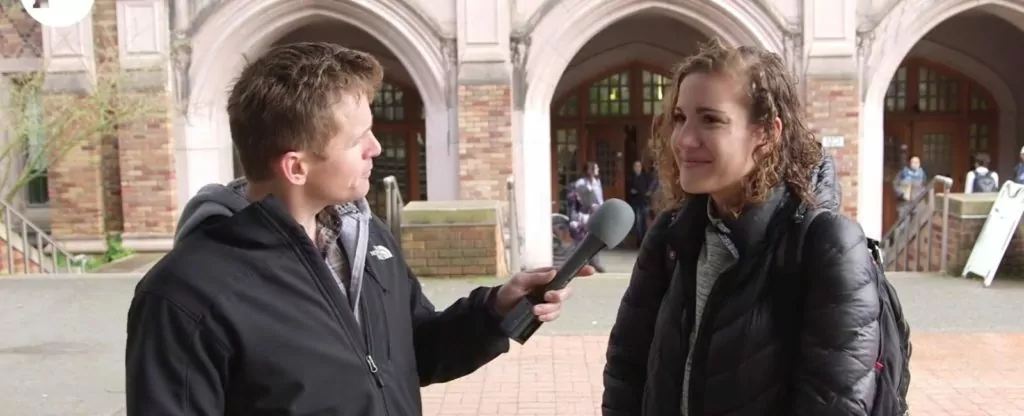When your child is old enough to write…
When your child learns to write he is ready to begin taking sermon notes.
Say, what?
Let’s say that little George is 4 or 5 or 6 years old and he knows how to write his name and how to write all of his letters. Now he can get started! All you need is a regular notebook (or half size) and a pen or pencil.
Before you go to church you should talk with him about the worship service, and how important it is to be quiet and still and to listen to God’s Word being preached.
Hopefully he has already been sitting in church for awhile and has become accustomed to obeying in this manner. Explain to him that he is old enough now to begin taking sermon notes!
As you listen to the sermon, write in the notebook a simple sentence that you have just heard the minister say. Remember to write it in the type of lettering that little George will be able to read, in the size that he is used to. Then hand it to George and tell him to copy it. If he is a beginner, he will take awhile to do so. When he hands it back to you, smile, and listen to the sermon for a moment, and write another sentence. He needs to remember not to have a conversation about it. Let George complete this second one as well.
Depending on the age and patience of your child, you can decide whether to have him write 5 sentences, or 10, or more. As he improves, he will be quicker and will accomplish more. He may keep it up throughout, or he may tire. I usually found it beneficial to “push” my child to do just one more after he said he was getting tired of it. This helped him to develop endurance.
After the service, take the notebook home. If you will take a few moments to read it over when he is present, and to show it to your spouse, he will see that this is important to you and it will help him to strive to do it well. If he is able, you might even have him read it as a part of your family Bible reading time.
This activity teaches him to take notes, because as he gets older you will ask him to listen and write down parts of sentences that he hears. It doesn’t matter if he gets all of the words – just that he is listening and getting some of them. Eventually he will progress to where he can find the main points and summarize them, but that’s a long way off.
This activity also gives him something very worthwhile to do during worship. It is directly involved with the worship, as opposed to just being a toy, a page to color, or a series of “o’s” to fill in, in his bulletin. It says to him that he is worshipping too, not just being forced to sit quietly for his parents’ sake. It says to him that he is capable of taking sermon notes, just like the “big people” do. It also helps if he sees those older than him participating in this way.
As his notebook progresses you could use it during the week to help him remember what he learned on Sunday. If you are enthusiastic, he will be also.
When your child is old enough to sing…
When your child is old enough to sing a song he is old enough to learn psalms and hymns. Little George is capable of picking up any song that he hears. So if you regularly sing words of praise to the Lord in your home and in your car, he will soon know all of the words as well. Good quality music that truly honors the Lord is just as fitting for children as it is for adults. They do not need off-key vegetables to get their attention. You might teach your children the psalms and hymns by methodically going through your church songbook and learning to sing all of the first stanzas. What a wonderful preparation to be ready for whichever ones the minister thinks fit best with his sermons for that day!
Another way that you can assist your child in worship is by finding out ahead of time, if possible, which hymns or psalms will be sung next Sunday. Then you can sing that one at home a few times so that it becomes familiar to him. If it’s one that was unfamiliar to you this could benefit everyone and improve the musical part of the worship of our Lord. If enough people are interested in knowing ahead of time perhaps you could ask the minister if he could email the titles or page numbers to the congregation by Thursday or Friday of each week.
All of this serves to teach our children that what happens on Sunday is important and that it is not a Sunday-only activity. Preparing for worship and reflecting on it afterwards bring it to the forefront and promote our spiritual growth.
Again, a little enthusiasm goes a long way.
When your child is old enough to read…
When your child is old enough to read he can begin reading the Bible. What an excitement it is for little George to help read one of the Bible verses at a family Bible reading time. Maybe he can only identify half or two-thirds of the words, but he is sure trying. Soon he will want to be able to read the other words too, and that will encourage him to learn the rest of his phonics. What a goal!
Historically, most schools were started so that people would be able to read God’s Word. George will appreciate that he too is included in the Bible study. He also won’t need to fuss for attention if he is already included in taking a turn.
When your child is old enough to speak…
When your child is old enough to speak he can pray. He might repeat after Mom or Dad, or he might add his own simple words of thanks and request. But he should not even be able to remember a time when he did not pray several times every day.
Worship is the central, most important thing that we do in our entire week. It is the time that we humbly come to confess our sins, give our thanks, sing of His glory, ask for help, and learn of His grace. When we teach our children right from the start how to worship, we accomplish the most important task that we must do.
Sharon L. Bratcher has a book with 45 of her RP articles in it, and a 2-year lesson plan entitled “Bible Overview for Young Children” ages 2-6 and 6-9. For information on these, contact [email protected]. This article first appeared in the Dec. 2006 issue, under the title “Sermon notes, and songs, for small fries.”











